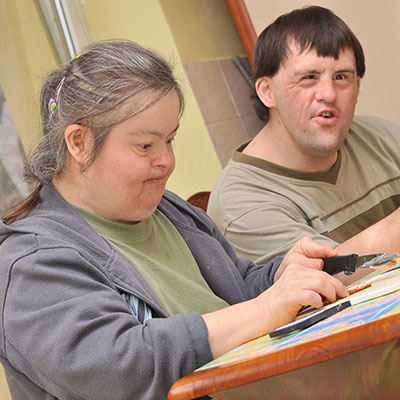Introduction
If you’re a parent, caregiver, or simply someone wanting to increase awareness about behavioral and developmental disorders, have you ever wondered how pws syndrome symptoms affects one’s quality of life?
What makes it such a challenging condition to manage? In our increasingly informed world, it’s essential to have a comprehensive understanding of how individuals with PWS Syndrome navigate life.
This blog post will provide an in-depth look at PWS symptoms and the significant impact it can potentially have on their quality of life.
There’s little doubt that the journey with pws syndrome symptoms is a daily challenge that goes beyond the individual to their family, caregivers, and support system.
In the following sections, we’ll delve deeper into the nature of PWS Syndrome, the signs to watch out for, its consequences on daily living, and how support within the home can be optimized for better life management.
This will be a journey of insight and empathy, linking PWS Syndrome’s complexities to the practicalities of life experience.
With a sharper grasp of PWS syndrome’s realities, the role of design and environment in making life more manageable and satisfying for those with this condition will also be highlighted.
This will focus on how thoughtfully designed home improvements and lifestyle modifications can counteract debilitating symptoms, to promote a healthier existence.

Understanding the PWS Syndrome Symptoms Landscape
PWS Syndrome, or Prader-Willi Syndrome, is a rare genetic disorder that comes with a complex range of conditions which affect multiple body systems.
But how exactly does this landscape of symptoms emerge and evolve? Did you know these symptoms can begin appearing as early as infancy, often manifesting as feeding problems, failure to thrive, and weak muscle tone?
As children with pws syndrome symptoms, the symptom picture transforms, dictating every aspect of their lives. Issues range from hyperphagia (excessive hunger) to intellectual development challenges, certain physical traits, and social-behavioral difficulties.
By examining these symptoms more closely, we gain a clearer understanding of how they impact the daily life of PWS individuals and the creative ways to improve their living conditions.
The Prism of PWS Symptoms and Life Impact
For those with PWS Syndrome, ordinary life functions require extraordinary effort. Let’s consider a few aspects of daily life and how PWS symptoms impact these.
You might ask: How does hyperphagia affect a person’s ability to lead a normal life? What do behavioral issues mean in terms of schooling and social interaction?
Also, bear in mind the challenges that come with physical anomalies such as scoliosis, reduced muscle tone, or small hands and feet that make certain tasks difficult.
Transforming Home Environments for PWS Management
Home design is not just about making living spaces visually appealing, but it’s about creating functional, comfortable spaces accommodating for the needs of its inhabitants.
For families dealing with PWS Syndrome, home improvements can make a massive difference in managing the condition. But what does an exemplary PWS-friendly home look like? What features should it have?
Advanced Research and Hope for PWS
Investment in medical research has always marked significant leaps forward. With advanced studies on gene therapy and other drug treatments, there is hope for better management, if not a complete cure, of PWS Syndrome. What are the cutting-edge advancements in this regard?
The Power of Community and Specialized Support
It truly takes a village to cope with PWS syndrome. Knowing who to reach out to and the resources available can significantly ease the burden of managing this condition. The collective strength of the PWS community should not be underestimated.
Conclusion
Life with PWS Syndrome is undoubtedly challenging. However, understanding the impact of symptoms, recognizing the need for specialized support, and creating conducive, adaptive home environments are all steps in the direction of optimizing the Quality of Life for those touched by this disorder.
Let us not forget, pws syndrome symptoms affects more than the individual—it impacts us as a society. By educating ourselves about this syndrome and its implications, we can promote advocacy, push for more research, and increase the sphere of support for people with PWS.
By enhancing our focus on effective lifestyle modifications and strategic home improvements, we can play our part in making their lives healthier and happier.

